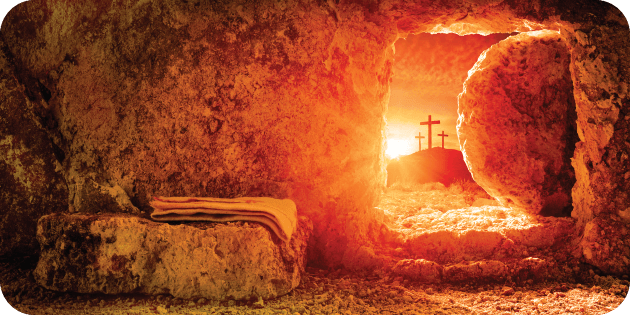

Brief Summary:
Chapters 1–7 outline the offerings required of both the laity and the priesthood. Chapters 8–10 describe the consecration of Aaron and his sons to the priesthood. Chapters 11–16 are the prescriptions for various types of uncleanness. The final 10 chapters are God’s guidelines to His people for practical holiness. Various feasts were instituted in the people’s worship of God, convened and practiced according to God’s laws. Blessings or curses would accompany either the keeping or neglect of God’s commandments (chapter 26). Vows to the Lord are covered in chapter 27.
The primary theme of Leviticus is holiness. God’s demand for holiness in His people is based on His own holy nature. A corresponding theme is that of atonement. Holiness must be maintained before God, and holiness can only be attained through a proper atonement.
For a more detailed summary select the link below.
The Book of Leviticus Summary
Summary of the Book of Leviticus – Bible Survey | GotQuestions.org
(Read Leviticus 24:10-23)
This offender was the son of an Egyptian father, and an Israelitish mother. The notice of his parents shows the common ill effect of mixed marriages. A standing law for the stoning of blasphemers was made upon this occasion. Great stress is laid upon this law. It extends to the strangers among them, as well as to those born in the land. Strangers, as well as native Israelites, should be entitled to the benefit of the law, so as not to suffer wrong; and should be liable to the penalty of this law, in case they did wrong. If those who profane the name of God escape punishment from men, yet the Lord our God will not suffer them to escape his righteous judgments. What enmity against God must be in the heart of man, when blasphemies against God proceed out of his mouth. If he that despised Moses’ law, died without mercy, of what punishment will they be worthy, who despise and abuse the gospel of the Son of God! Let us watch against anger, do no evil, avoid all connexions with wicked people, and reverence that holy name which sinners blaspheme.
For a more detailed summary select the link below.
Leviticus 24 Bible Commentary – Matthew Henry (concise) (christianity.com)
Leviticus 24:23
23 Moses spoke to the children of Israel; and they brought him who had cursed out of the camp, and stoned him with stones. The children of Israel did as Yahweh commanded Moses.
(Read Leviticus 25:35-38)
Poverty and decay are great grievances, and very common; the poor ye have always with you. Thou shalt relieve him; by sympathy, pitying the poor; by service, doing for them; and by supply, giving to them according to their necessity, and thine ability. Poor debtors must not be oppressed. Observe the arguments here used against extortion: “Fear thy God.” Relieve the poor, “that they may live with thee;” for they may be serviceable to thee. The rich can as ill spare the poor, as the poor can the rich. It becomes those that have received mercy to show mercy.
For a more detailed summary select the link below.
Leviticus 25 Bible Commentary – Matthew Henry (concise) (christianity.com)
Leviticus 25:35
35 “‘If your brother has become poor, and his hand can’t support himself among you, then you shall uphold him. He shall live with you like an alien and a temporary resident.
(Read Leviticus 26:40-46)
Among the Israelites, persons were not always prosperous or afflicted according to their obedience or disobedience. But national prosperity was the effect of national obedience, and national judgments were brought on by national wickedness. Israel was under a peculiar covenant. National wickedness will end in the ruin of any people, especially where the word of God and the light of the gospel are enjoyed. Sooner or later, sin will be the ruin, as well as the reproach, of every people. Oh that, being humbled for our sins, we might avert the rising storm before it bursts upon us! God grant that we may, in this our day, consider the things which belong to our eternal peace.
For a more detailed summary select the link below.
Leviticus 26 Bible Commentary – Matthew Henry (concise) (christianity.com)
Leviticus 26:45
45 But I will for their sake remember the covenant of their ancestors, whom I brought out of the land of Egypt in the sight of the nations, that I might be their God. I am Yahweh.’”
(Read Leviticus 27:34)
The last verse seems to have reference to this whole book. Many of the precepts in it are moral, and always binding; others are ceremonial, and peculiar to the Jewish nation; yet they have a spiritual meaning, and so teach us; for unto us, by these institutions, is the gospel preached, as well as unto them, Hebrews 4:2. The doctrine of reconciliation to God by a Mediator, is not clouded with the smoke of burning sacrifice, but cleared by the knowledge of Christ and him crucified. We are under the sweet and easy institutions of the gospel, which pronounces those true worshippers, who worship the Father in spirit and truth, by Christ only, and in his name. Yet, let us not think, because we are not tied to the ceremonial rites and oblations, that a little care, time, and expense, will serve to honour God with. Having boldness to enter into the holiest by the blood of Jesus, let us draw near with a true heart, and in full assurance of faith, worshipping God with the more cheerfulness and humble confidence, still saying, BLESSED BE GOD FOR JESUS CHRIST.
For a more detailed summary select the link below.
Leviticus 27 Bible Commentary – Matthew Henry (concise) (christianity.com)
Leviticus 27:34
34 These are the commandments which Yahweh commanded Moses for the children of Israel on Mount Sinai.